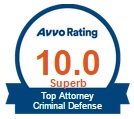For some convictions, however, there is a solution: expungement. If you receive an expungement, your conviction is sealed and is not viewable by the public. For employers and landlords, it’s as if the conviction never existed. That’s why a judge Landon appeared in front of recently called expungements “legal magic”. However, if you get an expugement, your record is not completely gone. Law enforcement and immigration agencies can still see your record.
Some convictions cannot be expunged, but the laws have changed and opened many doors for people trying to get their lives back. If your case resolved in any of the following, you may be able to seek an expungement:
- All cases resolved in favor of the defendant, including cases where charges were dismissed, cases that resulted in an acquittal by a judge or jury, and any other case that did not involve a guilty plea.
- Any case involving a diversion where charges were dismissed after successful completion of formal or informal probation if it has been one year since the completion of conviction.
- All petty misdemeanor offenses if it has been two years or more since the date of conviction.
- All misdemeanor cases if it has been two years or more since the date of discharge from probation or sentence.
- All gross misdemeanor cases if it has been four years or more since the date of discharge from probation or sentence.
- Some felonies if it has been five years or more since the date of discharge from probation, parole, or sentence.
- Case number of the charge you want to have expunged.
- All residence addresses from date of conviction.
- A statement about why you want an expungement.
- A statement about how you’ve changed since your conviction.
- All criminal charges.
- The name of victim (if any).
As you can see, getting an expungement is a complicated and lengthy process. On top of the paperwork mentioned above, you must notify 10 to 16 city, county, and state agencies of your expungement request. The notification gives the agencies notice of your request and gives them a chance to object to it.
Don’t let a mistake define who you are to potential employers and landlords. At Ascheman Law, we can help you navigate this maze and assist you in getting a charge or conviction expunged. 612-217-0077 Landon Ascheman has successfully obtained expungements for numerous clients. He has presented expungement seminars and educational programs to a variety of groups, including the Minnesota State Bar Association, the Ramsey County Bar Association, and William Mitchell College of Law.
- Appeals
- Assault
- Boating While Intoxicated
- Burglary
- Child Abduction
- Child Abuse and Neglect
- Child Sexual Abuse
- Controlled Substances
- Controlled Substances
- Criminal Defense
- Criminal Forfeiture
- Criminal Sexual Conduct
- CVO & CVH
- Domestic Abuse
- Drivers License Suspension
- Driving While Intoxicated
- Embezzlement
- Expungement
- False Imprisonment
- Felony Charges
- Forgery
- Fraud
- Gross Misdemeanor
- Hit and Run
- Internet Crimes
- Juvenile Cases
- Kidnapping
- Minor Consumption
- Misdemeanors
- Murder Charges
- No Contact Orders
- Parole & Probation
- Shoplifting
- Stalking
- Theft
- Traffic Tickets
- Trial Practice
- Weapon Charges
- White Collar Crimes
Contact Us
Landon Ascheman
500 Laurel Avenue
St. Paul, Minnesota 55102
MAP IT
Phone: 612-217-0077
Fax: 651-344-0700
Landon@AschemanLaw.com



